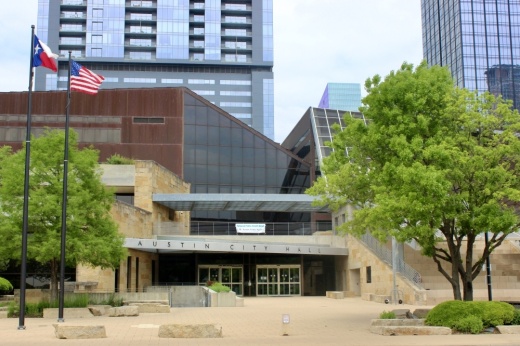"This could be a historical moment for the city, assuming that we get the partners we’re going to need in order to be able to tackle challenges that are bigger than what the city can do by itself, or the county can do by itself, or any of the service organizations can do by themselves," Mayor Steve Adler said after the plan's passage. "It’s going to take us all working together and pitching in.”
Council members had spent the last several weeks hashing out their priorities for using up the federal dollars, which are expected to be allocated to the city between this year and next, on priorities ranging from the city's homelessness crisis to sustaining the local arts and music scene, rental assistance and childcare. Discussions Thursday centered on using up $188.4 million in overall ARPA funding, $35.3 million in federal rental assistance dollars, $11.4 million in federal homelessness dollars and $18.5 million of the city's emergency reserves through a framework advanced by council members Alison Alter and Kathie Tovo.
Through the final planning process, Adler and several council members reiterated their desires for homelessness to be the main component of the city's spending outline. Under the Alter and Tovo proposal, nearly $107 million could be used on homelessness initiatives including housing, emergency sheltering, workforce programs and capacity building. The majority of that allotment, $88.6 million, was dedicated by council for the rollout of the recently-announced "summit plan" to house 3,000 unsheltered Austinites by April 2024 and the city's Homeless Encampment Assistance Link initiative.
"I am excited and hopeful about this investment in homelessness," District 5 Council Member Ann Kitchen said. "It’s time now for our community to come together to address homelessness in a systemic way that accelerates our housing plus services response; that increases efficiencies by emphasizing coordination; that really addresses some infrastructure issues. In other words it fills in ... workforce and housing infrastructure gaps that are causing system breakdowns right now."
Additional direction from Tovo also requires City Manager Spencer Cronk to break down funding of the multiyear summit plan, estimated to cost just over $515 million, by early July. With an estimated $222.1 million identified as "committed or anticipated" before this week and Austin now adding around $100 million to the mix, Tovo said the city's new contribution now depends on Travis County and other local players chipping in at least $200 million to fill the remaining gap.
"We are issuing this as a challenge," she said. "We are willing, we are ready, we are about to take this step to commit to investing these dollars, but we are doing so in a way that is contingent on that other public participation and on that private philanthropy. And we’re doing so in a way that I think is very responsible.”
On top of the homelessness considerations, several council members added on their own personal direction for spending during their Thursday discussions. Among those requests were District 2 Council Member Vanessa Fuentes's push to send $1.5 million to Del Valle ISD for dual-language pre-K instruction and items related to food insecurity, and District 7 Council Member Leslie Pool's ask to increase the city's Live Music Fund contribution above $10 million as had been proposed earlier this year.
Alongside the overall spending plan, council approved related actions directing $49.4 million in ARPA funding to the city's COVID-19 response and $20 million in emergency reserves to rental assistance via the Relief of Emergency Needs for Tenants program, an item sponsored by District 4 Council Member Greg Casar. All three items were passed together unanimously.
Prior to the ARPA framework's approval, Casar also told Cronk to monitor the remainder of the $42 million overall approved for emergency rental assistance this year, and to identify up to $6 million more in the city's budget if the ARPA funds are exhausted. Casar said if the city continues with its present spending of around $8 million each month on rental assistance, that support could be required to keep pace by year's end.
“My direction says that, if it turns out that that’s not enough and, for example, the $48 million number ends up being what we really needed, that the manager is to bring back a budget amendment to ensure that we don’t run out of funding by the end of the year," Casar said. "So flag $6 million somewhere in funds just to know that if it seems that that eviction wave may come and we didn’t do enough, for them to just bring that item back for our consideration.”
The ARPA framework was one of council's last major items reviewed before their mid-year break, which lasts until later this summer. Council members will still be working and participating in committees during that time and may engage in virtual discussions or specially-called meetings, but regularly scheduled sessions are not set to resume until late July—possibly in person—as annual budget planning ramps up.





